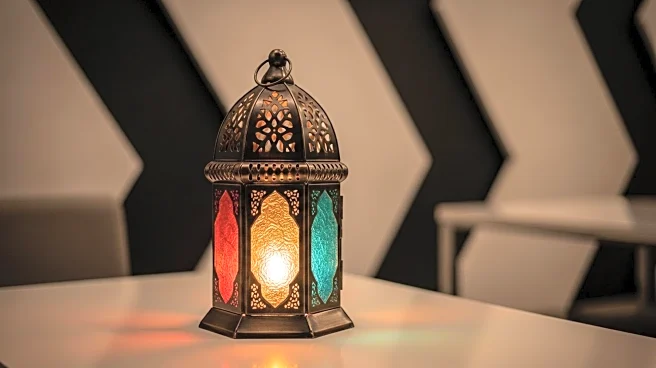What is the story about?
What's Happening?
Ashleigh Plumptre, a Nigeria international footballer, has become the first player to transition from the Women's Super League (WSL) to the Saudi Women's Premier League (SWPL). Her move has sparked discussions about life for women in Saudi Arabia, particularly in the context of sports and societal norms. Plumptre resides in a gated community in Jeddah, which offers a lifestyle similar to Western suburban areas, complete with amenities like gyms and pools. She expresses feeling safer and happier in Saudi Arabia compared to the UK, citing personal experiences of security and peace. Despite some reforms, such as women being allowed to drive since 2018 and apply for passports independently since 2019, the concept of 'wilaya' or male guardianship remains a significant cultural aspect. Plumptre acknowledges the ongoing restrictions women face but highlights her personal sense of safety and the respectful treatment she receives.
Why It's Important?
Plumptre's move to Saudi Arabia and her subsequent reflections provide insight into the evolving landscape for women in the country, particularly in sports. Her experiences challenge some Western perceptions of Saudi Arabia, suggesting a nuanced reality where reforms coexist with traditional practices. This development is significant as it highlights the potential for sports to act as a bridge between cultures and as a platform for social change. The presence of international athletes like Plumptre in Saudi leagues could influence public perceptions and encourage further reforms, impacting the broader societal and cultural dynamics in the region.
What's Next?
The integration of international players into Saudi sports leagues may prompt further discussions on women's rights and societal norms in the country. As more athletes share their experiences, there could be increased pressure on Saudi authorities to continue reforms and improve conditions for women. Additionally, the success and visibility of the SWPL could inspire other countries in the region to invest in women's sports, potentially leading to a broader shift in gender dynamics across the Middle East.
Beyond the Headlines
Plumptre's narrative underscores the complex interplay between cultural traditions and modern reforms in Saudi Arabia. Her positive experiences may encourage other female athletes to consider opportunities in the region, potentially leading to a more diverse and inclusive sports environment. However, the persistence of the 'wilaya' system and other restrictions highlights the ongoing challenges women face, suggesting that while progress is being made, there is still a long way to go in achieving gender equality.

















